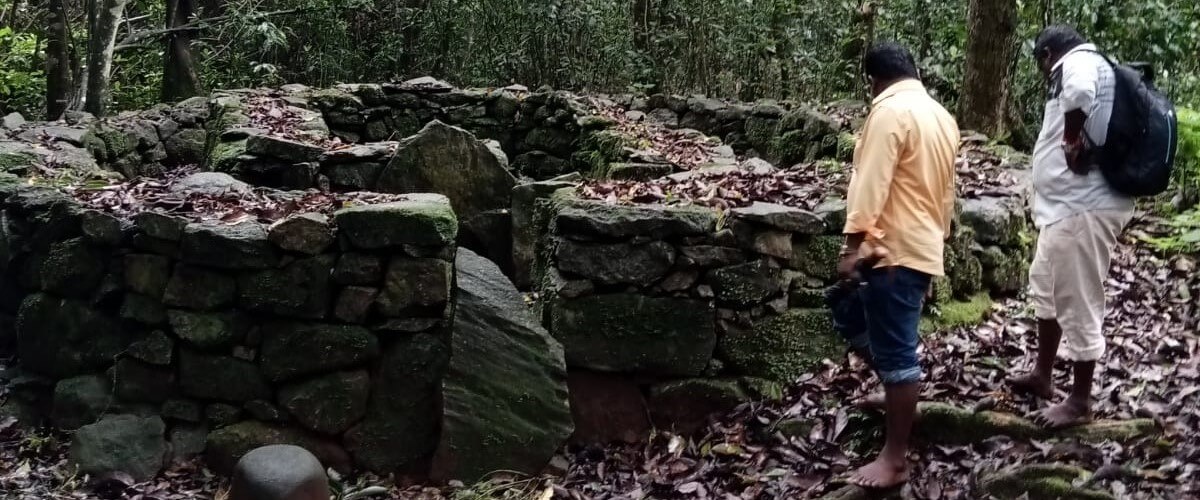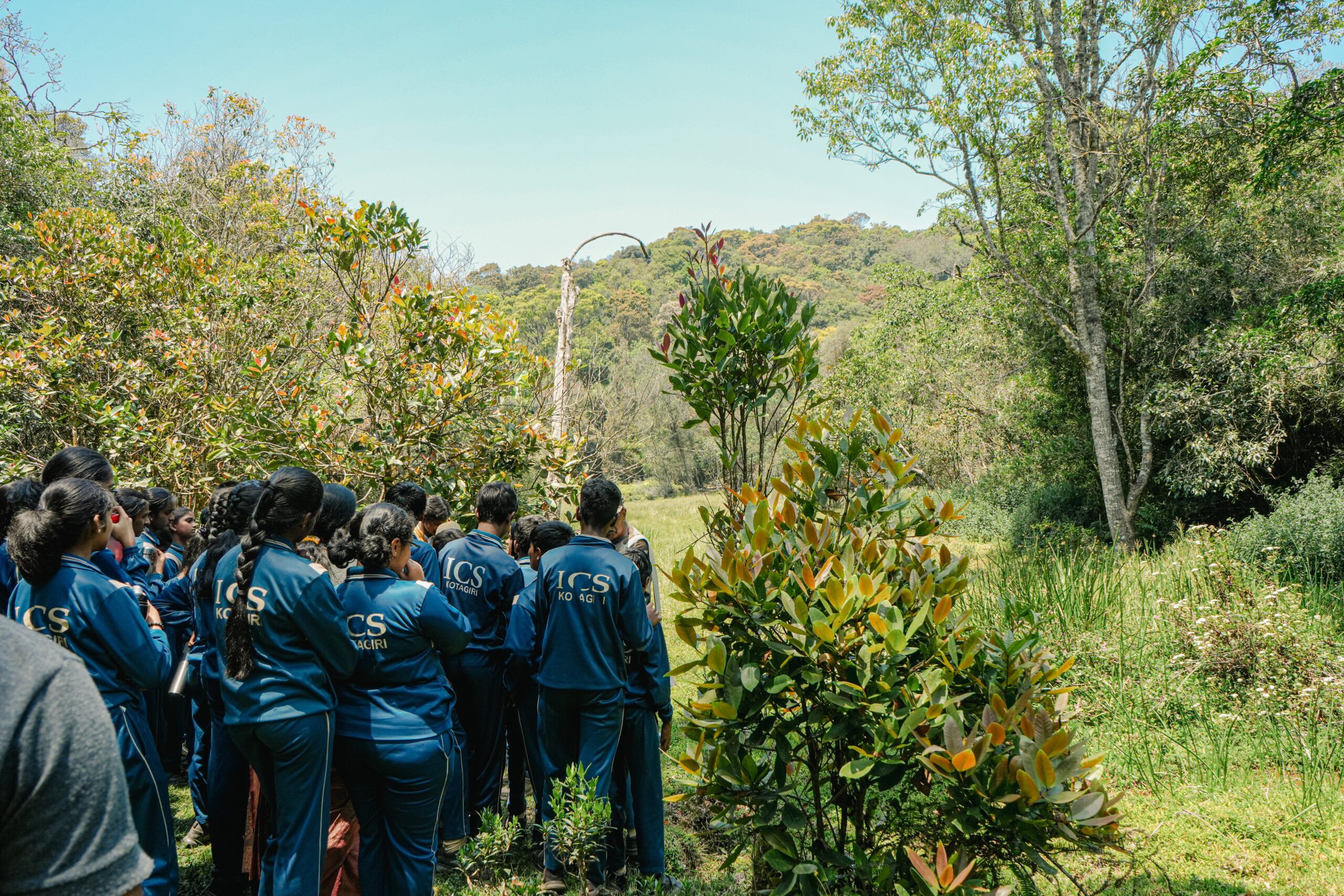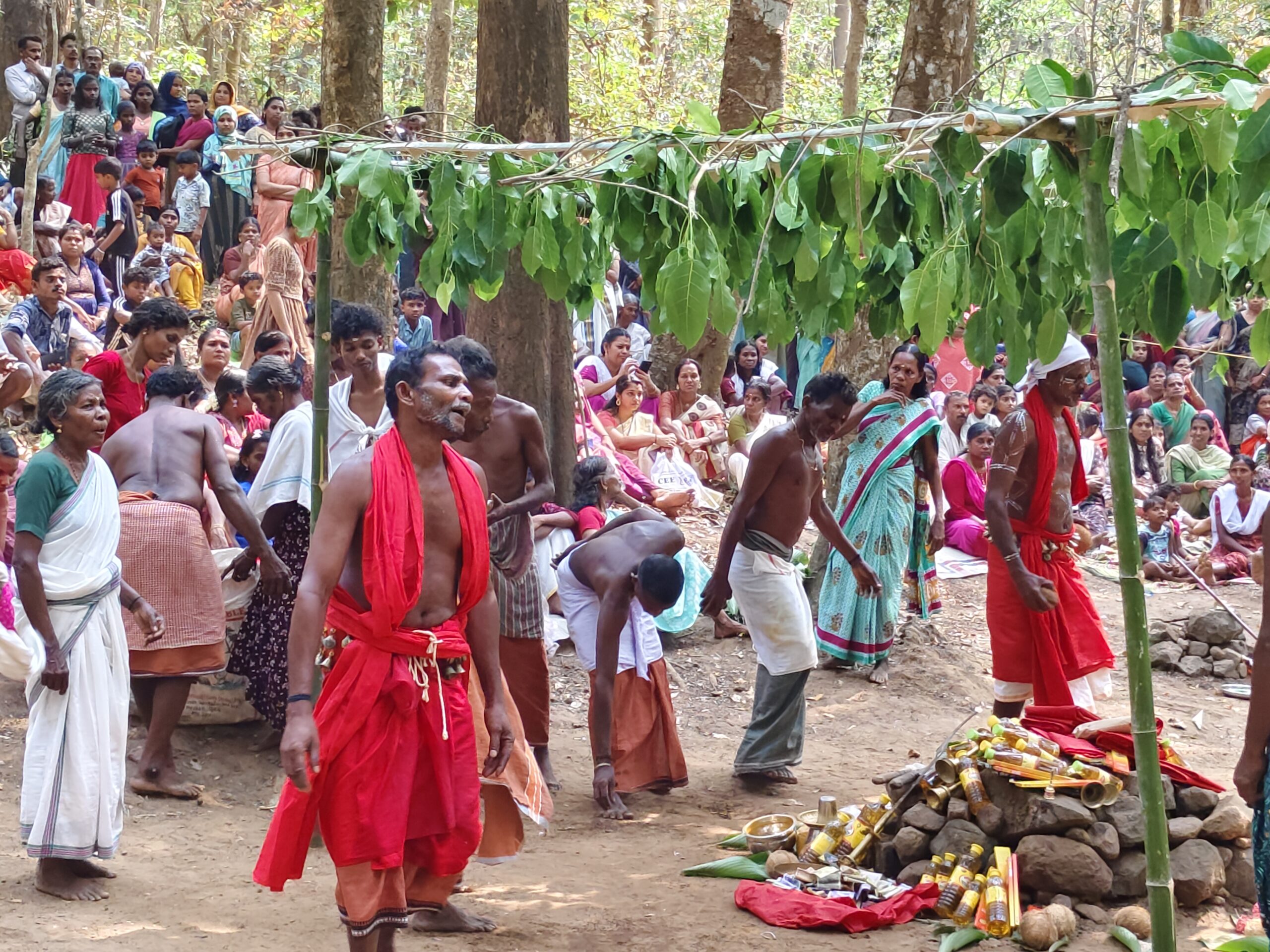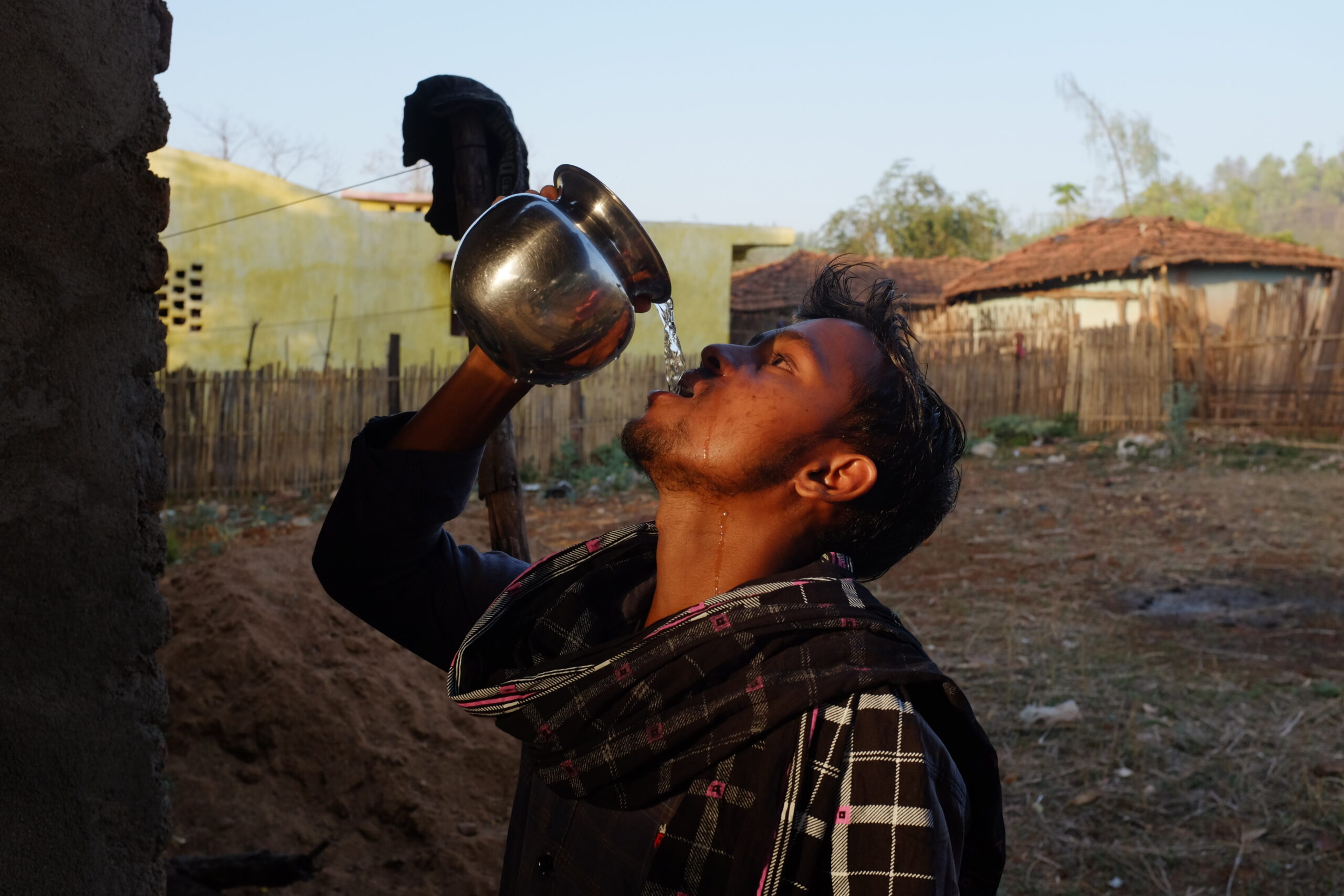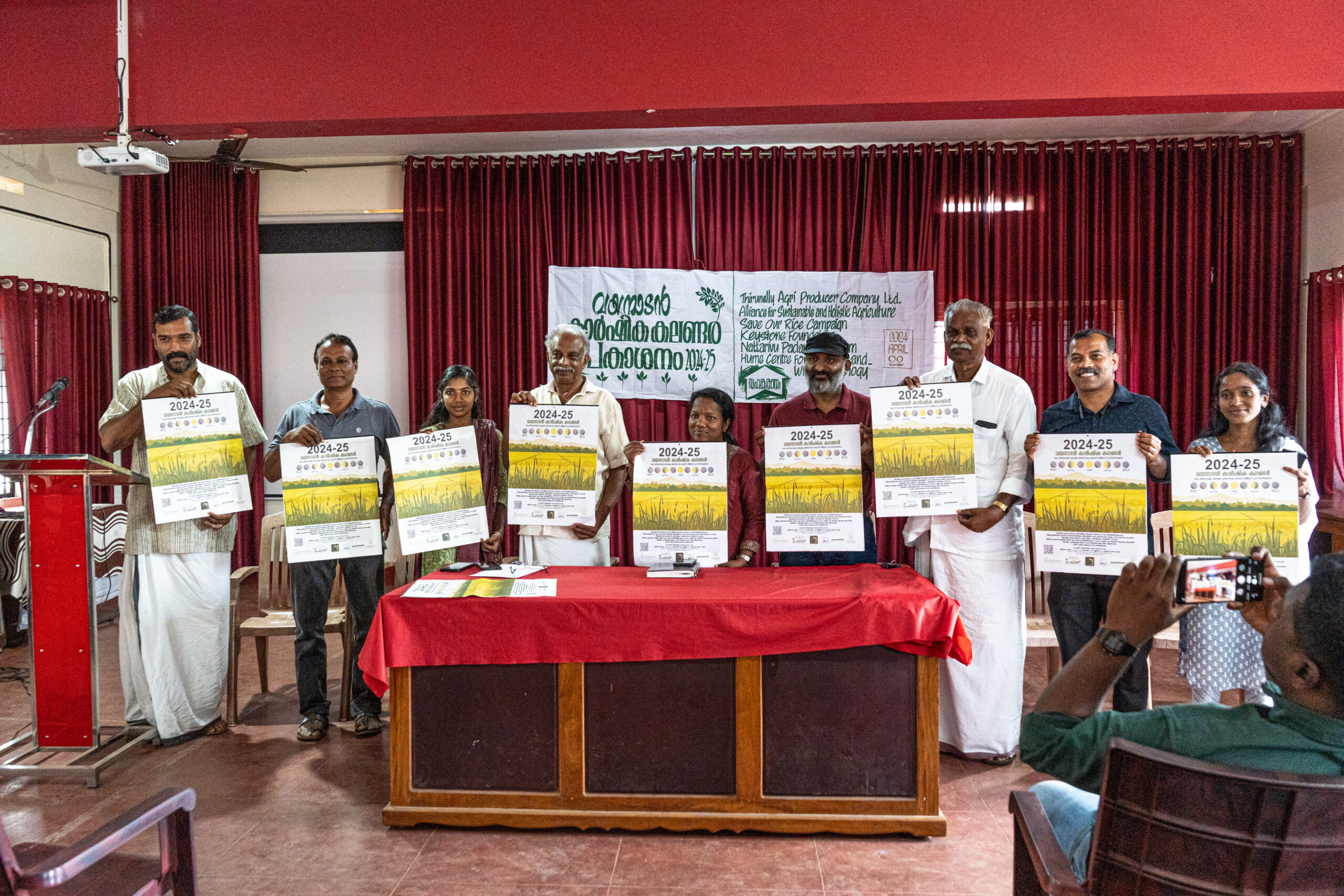December 27, 2022
By Daniel Samraj and Ranjani Prasad (People & Nature Collectives team)
The People and Nature Collectives team has had an exciting couple of months of explorations into community histories and people’s understandings of the past. Many of the activities for the month fostered renewed interest for the team into local stories of the landscape and ways of engaging the public in history research and practice.
One of the projects through the Global Fund for Community Foundations has enabled a collaboration with an archaeologist, Mr. Gopinathan from Pitchandikulam, Auroville over the last 6+ months. The aims of the project have been to consult, inform and involve members from indigenous communities and local residents about prehistoric rock art sites from their region along with providing training and methods of documentation, preservation and public outreach for the sites. These are often sacred sites for the community and are located within forested areas. The project hopes to build capacities of youth apprentices from communities who live around these sites. The apprentices and their support groups have an opportunity to reflect on the cultural importance of these sites along with an expert archaeologist, who in turn has been documenting some of these sites and unearthing further insights to produce local history modules that can then be taught at nearby schools. Some of the sites that the team visited included locations in Aracode, Konnavakarai, Kotagiri, Udhagamandalam taluks.
Protecting and preserving some of these sites has become increasingly important as the petroglyphs, petrographs, dolmens, menhirs, hero stones and other archeological formations have severely weathered over the last few decades. Just earlier this year, William Noble, an important scholar of Nilgiri archaeological sites from the 1970s to early 2000s, passed away leaving behind rich documentation and analysis of many Nilgiri archeological sites. Some of these are becoming eco-tourism sites, but the majority of them have been weathered and faded, littered with waste or in select cases, vandalised. Some citizen groups have also been taking active interest in these sites through documentation and conducting eco-tourism trails. The project helps us explore how the communities that live around these sites can be involved in participatory preservation and local history sensitization.
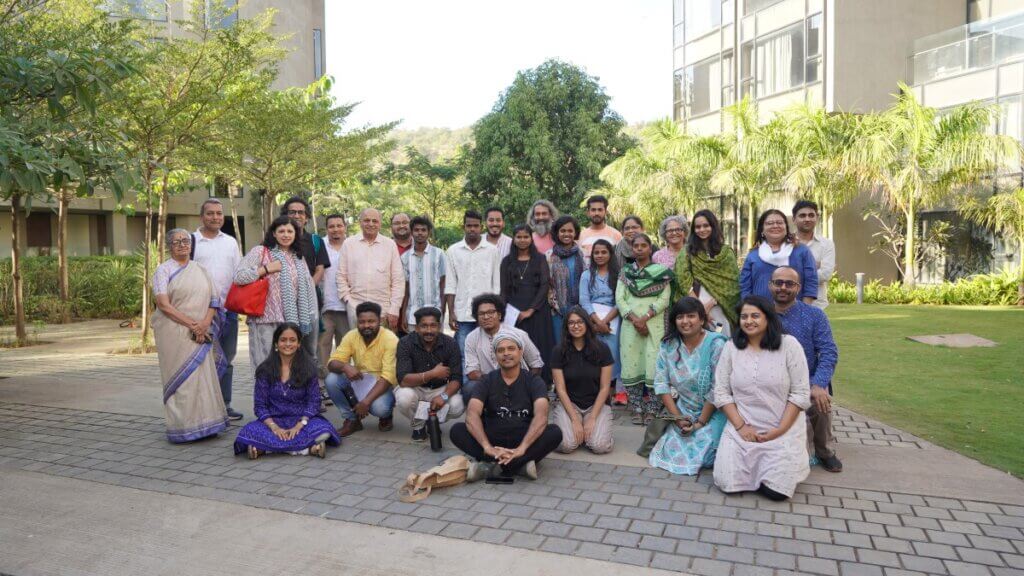
Other projects that have also enabled explorations into collective memories of the past have been through the research collaboration titled ‘The Ownership of Public History in India’ with Aparna Vaidik (Ashoka University), Maya Dodd (FLAME University) and Shalini Sharma (Keele University). In December, 12 members from the PNC team went for a workshop in FLAME University, Pune including research fellows from the Toda, Irula, Kattunaickan, Muthuvan and Cholanaickan communities. The two day gathering enabled rich cross learnings and dialogues for our team. They had a chance to present their work in community media and research fellowships to a diverse audience as well as reflect on critical practice through engaging with other public history projects in the country. There was an eclectic mix of presentations by members from various important public history initiatives in the country, such as GN Devy (Adivasi Academy), Priti David (PARI Education), Nandini Oza (Oral History Narmada), Thomas Zacharais (The Locavore), Aslam Sayyid (Hallu Hallu), Yamini Krishna (Khidki Collective), Ashutosh Potdar (Hakara Journal), etc. who were able to engage with the work of the research fellows and promote insight into developing their respective projects. The event included a film screening, and a wild foods meal at Pagdandi book store and cafe.
As the month wrapped up, the team is enthused about so many aspects of community histories and hopes to take up more visits, consultations and explorations into building participatory public histories in the coming year!

